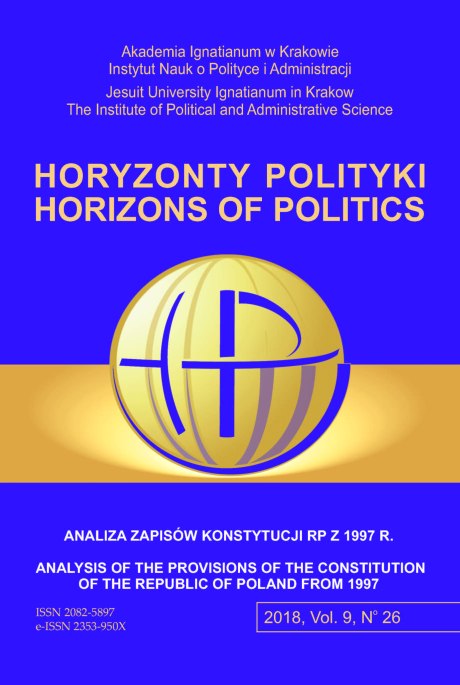Uczestnictwo polityczne jako wyzwanie dla współczesnej demokracji. O przymiotach i słabościach demokracji bezpośredniej
Does Democratic System Need Participation? On the Role of Direct Democracy, in Polish Constitution and Democratic Theory
Author(s): Leszek PorębskiSubject(s): Politics, Political Theory, Government/Political systems
Published by: Uniwersytet Ignatianum w Krakowie
Keywords: direct democracy; political participation; democratic system; theory of democracy;
Summary/Abstract: The aim of the paper is the analysis of the impact of political participation on democratic system. The reference plane of the analysis is direct democracy (including its forms comprised in Polish constitution), in that its limits and drawbacks. The research problem and methods: The research problem is considering the issue: Is any type of participation strengthening democratic system? The overall impact of participation on democracy according to contemporary theories of democracy is also taken into account in the analysis. The process of argumentation: Majority of theories of democracy assume that intensive participation results in better performance of political system. The practice of direct democracy proves however that citizens’ decisions are very often based on erroneous premises. The competence of citizens who participate in democratic procedures is thus not less important than the level of participation. According to research results, both characteristics (quantity and quality of participation) are however divergent. Research results: Contemporary democracy faces the difficult choice. We can opt for lower level of participation, thus securing more competent political decisions but at the same time accepting the absence of many social groups in the process of interests’ articulation. The other choice is the stimulation of high participation level, which implies the acceptance for the growing susceptibility for populism as well as the danger that irrational political options gain legitimacy. This dilemma seems to a great extent unresolvable. Conclusions, innovations, and recommendations: The stimulation of participation should be preceded by previous activity aimed at the increase of political knowledge of citizens as well as the forming of civic attitudes.
Journal: Horyzonty Polityki
- Issue Year: 9/2018
- Issue No: 26
- Page Range: 63-76
- Page Count: 14
- Language: Polish

